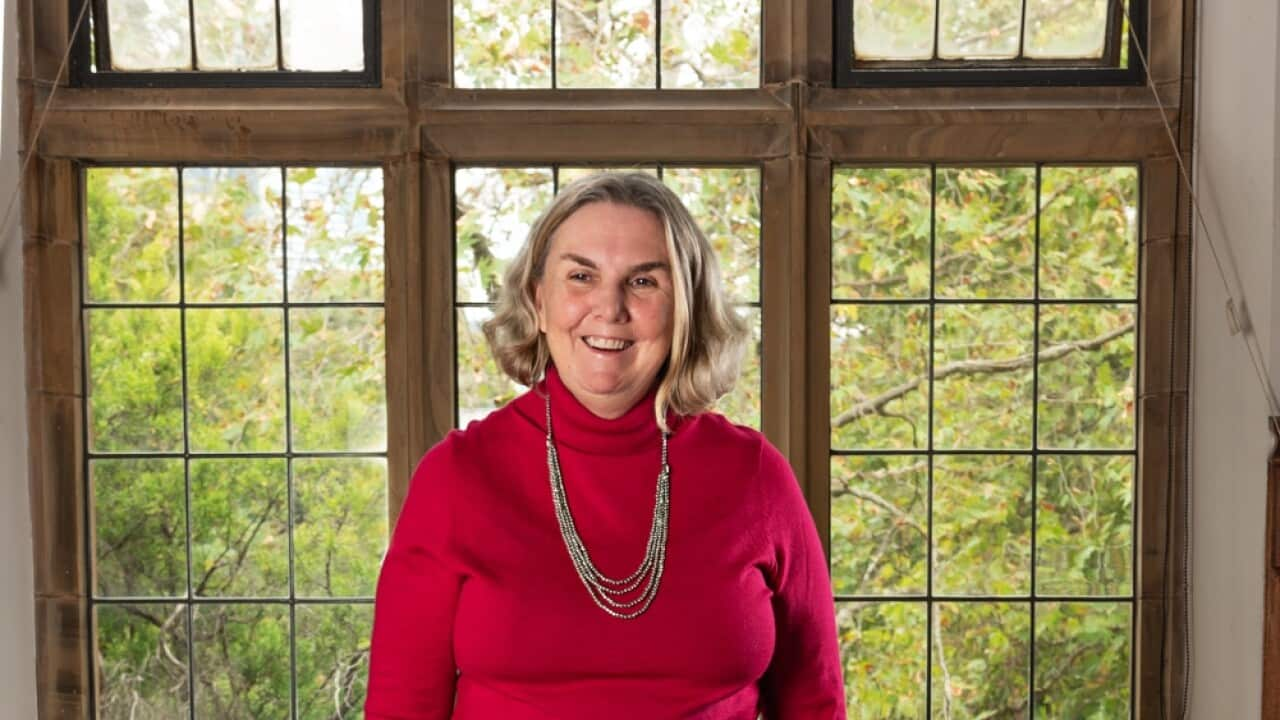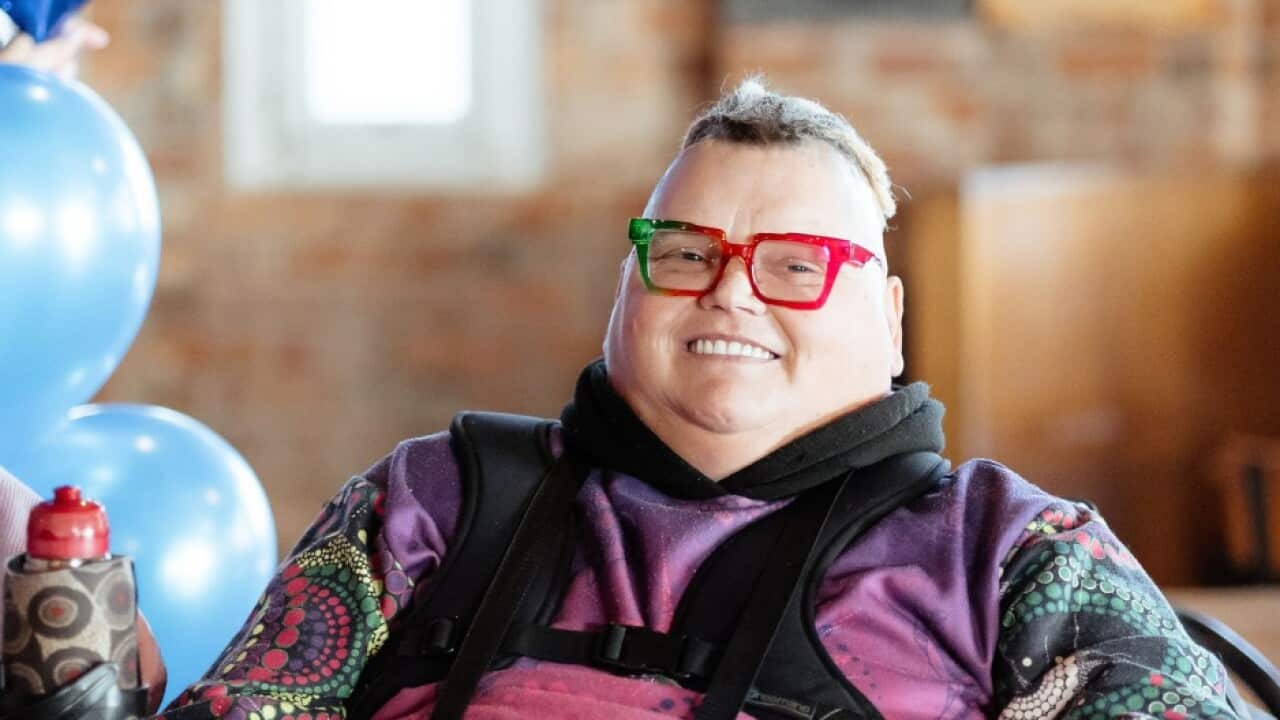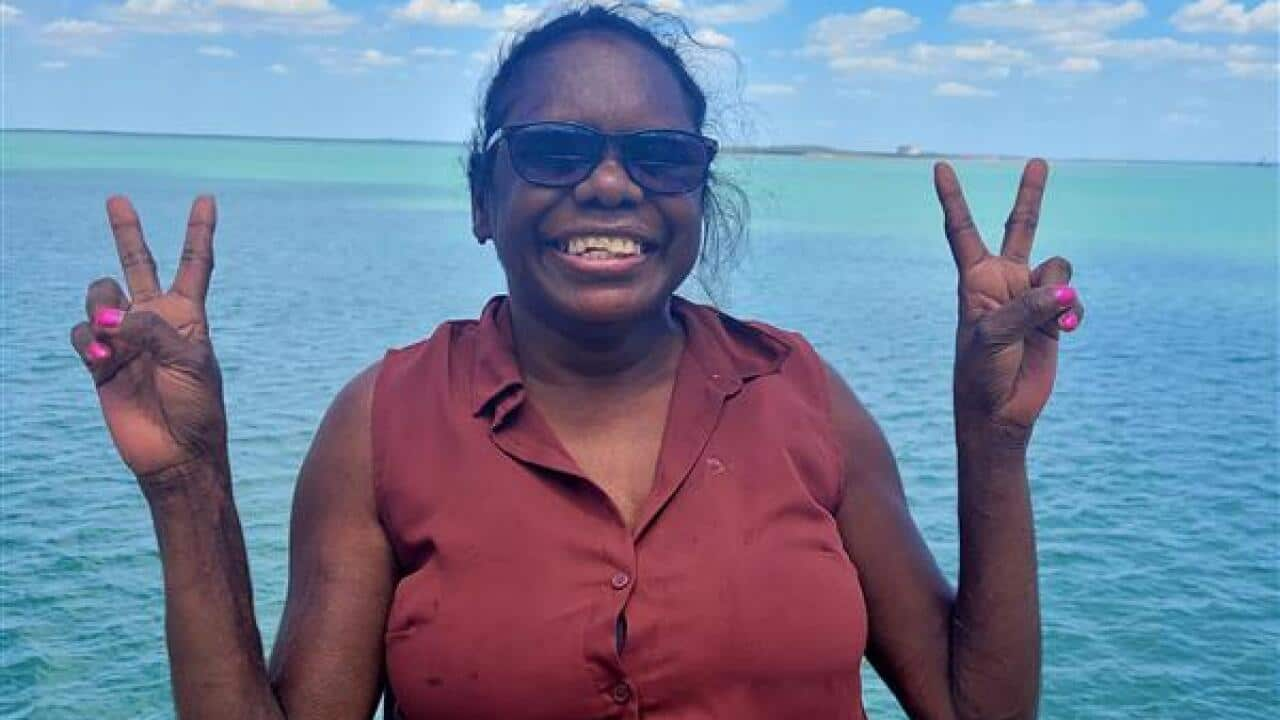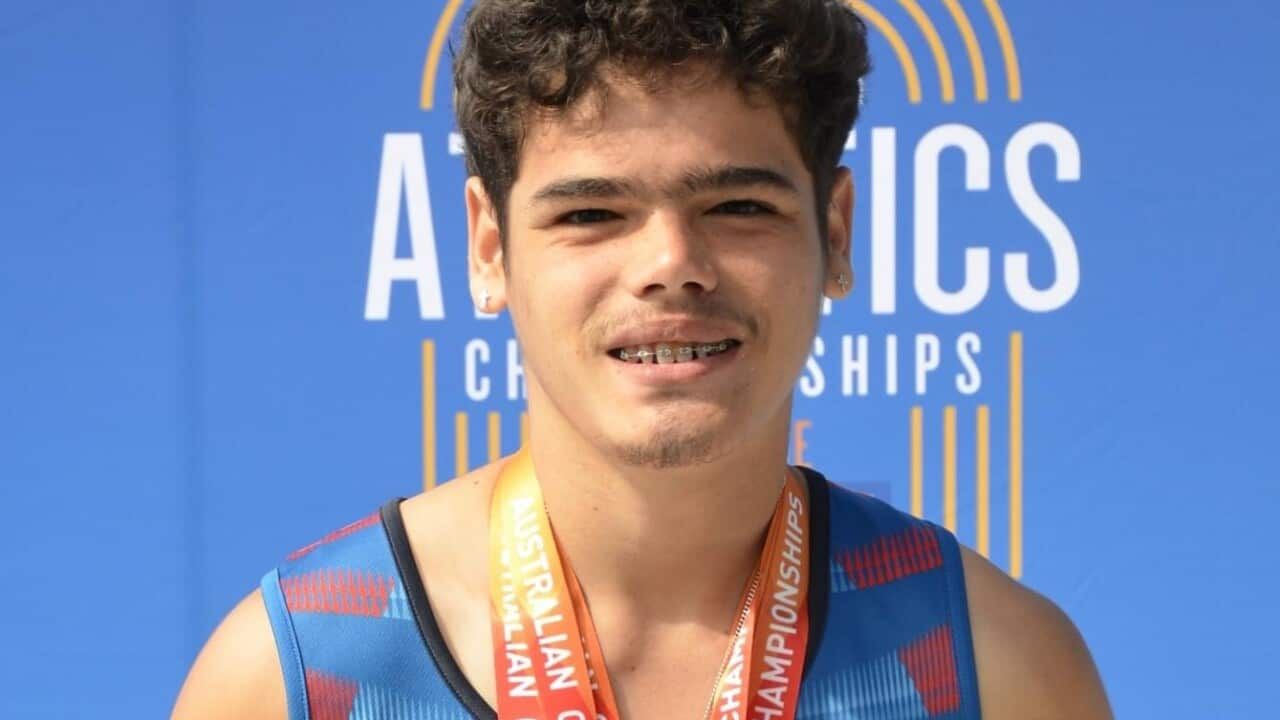Ngaire Pakai
Yaama, SBS acknowledges the traditional custodians of country throughout Australia and pays respects to Elders past and present and ongoing in stewardship in knowledges since time immemorial. Welcome to Speak My Language: Disability. Listen as we share stories of First Nations people who are
engaging in their passions while living with a disability. Throughout this series you'll hear inspiring stories from leaders and advocates within the community who have successfully pursued their dreams in their chosen fields. I'm Ngaire Pakai and in this episode I chat with Dr. Sheelagh Daniels-
Mayes, a Gomeroi woman and academic. She joins us to share about projects like BlakAbility her advocacy, and decolonising education and academia. Sheelagh lectures in Indigenous Studies and is Deputy Associate Dean in Diversity and Inclusion and Disability, Faculty of the Arts at the University of
Melbourne. Thanks for jumping on and joining us today, Sheelagh.
Dr. Sheelagh Daniels-Mayes
Thanks for the invitation. I'm more than happy to be with you today.
Ngaire Pakai
So Doctor, can you tell us, who are you? Who's your mob? Where you from?
Dr. Sheelagh Daniels- Mayes
Who am I? It's a question I often get asked. So through my mum, I'm Gomeroi. Some would say it's Kamilaroi, but we've been taught in recent times at Gomeroi. That's up around, I grew up sort of all over the place, but primarily around towns like Inverell, Tamworth and a little town called Bingara.
And through my father's side, non Aboriginal side. I'm descended from a runaway Italian monk that jumped ship in Melbourne in the 1860s. So a little bit of a mixed bag but I didn't know about my Aboriginality until my twenties when I was doing a university assignment. So it had been a closely
guarded secret of the family about our Aboriginal culture for one reason or another. When I found out, it made a lot more sense.
Ngaire Pakai
In your role at the University of Melbourne, what is it that you do? It's a mouthful, but what do you do?
Dr. Sheelagh Daniels- Mayes
It is a mouthful. Look, I'm basically, I'm an Associate Professor these days. I'm basically here, safeguarding, I think is probably a word we could use. Indigenous studies done proper ways, and also doing a lot of advocacy work and systemic work around disability and access and oftentimes those two
join up. So I'm sort of bouncing between these different hats all the time. So I teach, sometimes I guest lecture, I cause trouble at committee meetings, I recruit students to do honours and PhDs with me, which I love doing. So it's a lot of work but I love what I do. So you name it, I think I do it
these days. I'm off to a barbecue in a little bit for our First Nations Indigenous honours students. So that's the other thing we do, is we just keep building those relationships with mob coming through university.
Ngaire Pakai
Your expertise in research includes sociology of racism and critical Indigenous studies and critical disability studies and intersectionality. Where does your interest in these fields come from?
Dr. Sheelagh Daniels- Mayes
So I think the easiest way to understand this is because I live it every single day. I lost my eyesight as a kid. We're not quite sure when, but by the time I was seven, we knew there was a problem. So I, had eye surgery done and had a little bit of eyesight left over. Was institutionalised in, what
was called handicapped institution from the age of 9 to 16. Battled my way out of there, got myself expelled from that institution, got into university, failed a lot of subjects because of really bad education as a kid, but kept on persisting and what have you. And, so sort of, I bounced between
psychology and sociology and what have you, because as a blind person, I couldn't get access to all the material that I needed to study. But also interests changed over time. I fought tooth and nail not to be a disability scholar because that's what was expected of me. Because you have a disability,
you must work in disability. But things changed during the pandemic. I was doing, Indigenous studies and Indigenous education at another university and the Elders were saying to me, you need to go and do more work with mob around disability because government, community don't get it. You know, you
don't argue with your Elders do you?
Dr. Sheelagh Daniels- Mayes
Not wise to argue with your Elders I mean, I did a PhD because the Elders told me to. Yeah, they certainly do put you on the right track. So now it's sort of like, this is where we get to, BlakAbility looking at that intersection of, you know, what it is to be a person who is both Aboriginal and has
a disability. And more and more I'm getting into that gender work too, of what is it to be an Aboriginal woman with disability? It's surprising that in 2025, this is all new knowledge.
Ngaire Pakai
As a proud Gomeroi woman and a person with low vision, why is it important that we have Aboriginal Australians in tertiary education as like, students, professors and researchers?
Dr. Sheelagh Daniels- Mayes
Look, there's an old saying that if you're not at the table, you're on the menu. Coming to university, I mean, I've been in and out of university since the 1980s, in one way, or another, and I always tell students that I seem to get blacker and blacker the longer I'm here. What I mean by that is
that there's a lot of stuff that goes on in our heads and we're not quite sure how to put it into words. So study through sociology or psychology or Indigenous studies, whatever, helps us find those words and it makes you stronger and stronger so that you can go out to government, to your local
doctor, to community, to football, to whatever, and be able to talk very proudly and very with great conviction, great strength about who you are as an Aboriginal person. You can talk strong about disability, you can talk strong about a lot of things. So the whole point of coming to university is to
be able to have those conversations, to be able to advocate for community. I mean, I've been raised by Elders to think about downward thinking. So what I mean by that is that, you know what I do now, I stand on the shoulders of giants that came before me. But I've also got to remember that I'm
focused on the next seven generations coming through. What sort of world do we want in seven generations? You know, you're talking two, 300 years time. What do we want? And we have to build the people to be able to build that world. So that's why it's really important for mob to come into
university, to become professors, to become researchers, professional staff, you name it, we need them.
Ngaire Pakai
Can you share with us what is BlakAbility project? Why is it significant?
Dr. Sheelagh Daniels- Mayes
So BlakAbility and we spell the BlakAbility without the C. So we take the C out because that stands for all the wonderful things like colonisation, capitalism, Captain Cook, colour, class, all those things that weren't part of First Nations culture before 1770. So we take the C out. So what we're
trying to do with BlakAbility is it's strengths based. We're in our second year, it feels longer. Second year of a five year research project. We got $2 million from the Australian Research Council, which is the biggest investment of any sort of research in Australia into Aboriginal people with
disability. We've got a few other people coming through now, but it was the biggest investment at that time. We know, and other scholars have gone before me, like John Gilroy and Scott Avery, that in all of the 300 plus Aboriginal languages we have across this continent and the surrounding island,
we know that there's no word equivalent to disability in any of those languages. Okay, there's nothing derogatory in those languages, there's no medical model, there's no gotta fix it, you're no use. All of those sorts of things that we hear quite often with Western understanding of disability, they
didn't exist, didn't mean that there wasn't disability. I mean, we've got some really interesting, archaeological stuff that tells us stories. And we know, and it still happens now that, you know, born different? So what, you just figure out where your strength is to be able to help community. So
you've got one leg, you've still got another one, you can use the stick, get going. And it's a real tough love sort of way of doing things that communities come in, they come and surround us. So it's a very different cultural understanding of disability. It's looking at the strengths of the person,
not what they can't do. And that's what BlakAbility is trying to do, is to get this message out there that we are strong as black people. We are strong as people with physical, sensory, psychological, neurodivergent, whatever, differences. We're a whole rainbow of difference, really. So what we do
with BlakAbility, what we're doing is we're, one of the things, we're talking to Aboriginal and Torres Strait Islander people who have a disability, or we also talk to people with chronic health conditions that, you know, disrupt your day, disrupt your life. And we're talking with staff, we're
talking with students at all 39 universities. So if anyone's listening and they think that they might be eligible to have a yarn with us, please reach out. So we're talking to lots and lots of people with lots and lots of different disabilities to figure out what's working and what's not, with the
idea of sort of trying to fix some of those what nots.
Ngaire Pakai
Can you share with us some advice you might have that you'd give to students on how they may approach seeking accessibility accommodations whilst they're studying at university?
Dr. Sheelagh Daniels- Mayes
The thing is this, we know when, students come to university, quite often they've never been diagnosed. That's one thing that we've got to remember. So sometimes we'll get students coming to me or to others and going, I just feel too dumb for the university. Okay, and we have a bit of a yarn and we
get them to go and talk with a doctor or a counsellor or something to that effect. And it might come out that, you know, post traumatic stress disorder is causing problems. It might come out that you are, dyslexic, that you have a hearing problem that's never been picked up before. So quite often we
get students who have been diagnosed for the first time. That's one thing, I think it's really important to remember that you're not dumb. University is tough and if there's something there that hasn't been picked up before, it's even tougher. So it's a matter of reaching out to those that you
trust. And every university in Australia has an Indigenous student service of one sort or another. They're your first port of call. They know what's going on, they know who to speak to. So that's number one, reaching out, building those relationships, going to the barbecues, the KFC days or the
whatever days that they're doing, do that. But also then to not be shy about telling people within the First Nations programmes, within the student equity programmes, that you need some extra stuff to help you get your essays done, to get your exams done, to get your study done. You're not on your
own. And if someone doesn't listen to you or they dismiss you, then go to another person, find that person that's going to listen to you.
Ngaire Pakai
Your research is incredibly interesting and topical, for people who want to gain more information to read up on it and on your publications, where can they go to find these works?
Dr. Sheelagh Daniels- Mayes
So we've got a website that is just like a web blog that we have out of the University of Melbourne. But if people Google BlakAbility, and as I was saying before, we don't have the C in there, but if they Google the word BlakAbility, it brings you to our website, that tells you about the project,
that tells you about how you can get involved, who the people are involved in the project. Then it also has a link in there that we call Deadly News. We can get a newsletter out to people that we send out every couple of months to let people know what's happening with the research. If people Google
my name, they'll get to the University of Melbourne and that has all my papers on it, which are not all about disability, I also do climate change and I don't know what I don't do, it gets confusing sometimes. But there's been a few career changes over the time that I've been an academic, so they're
all there publicly available, but BlakAbility or they can email myself for more information or if they think they might be eligible to talk to us, or they think they might know somebody that might be eligible. We always up for a yarn, about that, but it's just really important to have the
conversation and that's what we're finding with, when we talk with people in the interviews, the yarning sessions, which can go from anywhere from an hour to three, four hours long some of these interviews, because people are saying to us, I've never had a chance to tell my story, no one's ever
listened before. So we're not going to cut you off after 60 minutes if you've still got more to say. And we're going to interview you not once, we're going to interview you up to six times over three years. So we know your story is big and has lots of different chapters in it and we want to get as
much of that story as we can to help you, but also to help other mob coming through the same sort of pathways.
Ngaire Pakai
What do you hope for the future of BlakAbility?
Dr. Sheelagh Daniels- Mayes
BlakAbility I think it's, I think the great thing with BlakAbility is that it's First Nations led, it's disability led. So everybody in this team is either First Nations and, or has a disability or lots of life experience around disability. So it's not outsiders, so to speak. We're doing it for
ourselves. My2IC is a woman by the name of Sharon Kerr, and she's a non Aboriginal woman who has worked with Aboriginal communities for decades and she's been doing all the interviews and people love her, which is great. So what we're hoping is at the end of these five years is that BlakAbility
becomes its own centre. So anything that anyone wants to know about Aboriginality and disability, that's where they'll go. We're setting up teaching modules as part of this research project so that we can teach our health professionals, our policy makers, all of those people in power seats, what
really needs to happen. But we also want to increase the employment of First Nations people with disability into all of these domains as well, so that we can get that seat at the table that I was talking about before. So I think BlakAbility will be the beginning of big changes and we also work with
communities overseas as well. We have great connections with Canada and South America and so forth. So maybe it becomes global, maybe we take over the world. I don't know. It seems to have a life of its own.
Ngaire Pakai
I want to thank you for coming on and having a yarn with us about disability, academics and BlakAbility
Dr. Sheelagh Daniels- Mayes
Not a problem. I'm really glad that you asked me on. I love this programme. I've listened to a number of the episodes, so it was really exciting to be asked to come and have a yarn and hopefully we connect with a few more mob out there who, want to become part of this project.
Ngaire Pakai
Speak My Language, Disability is an initiative funded by the Commonwealth Department of Social Services. It is led by the Ethnic Communities Council of New South Wales and proudly delivered in partnership with SBS.




